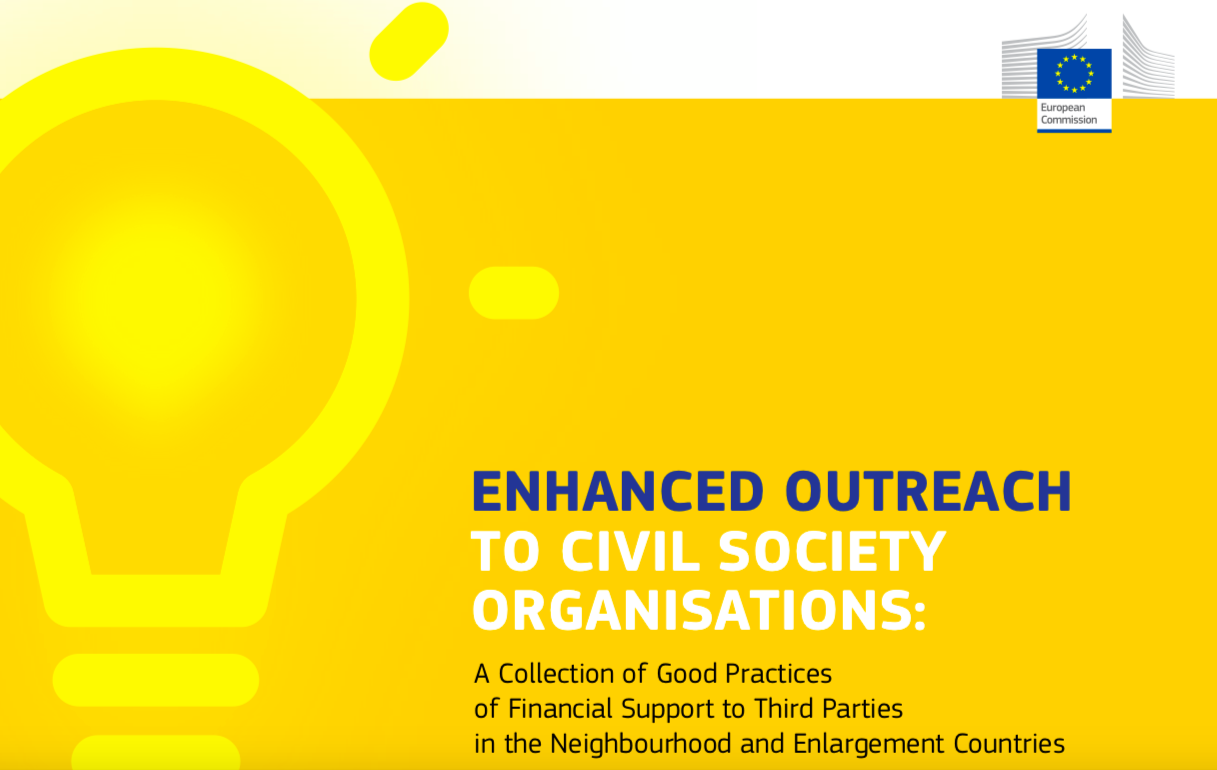
The publication in front of you documents the variety of existing approaches, experiences and lessons learnt from the field, with the aim to create collection of good practices on Financial Support to Third Parties (FSTP). Recent evaluations of DG NEAR support to civil society confirm that FSTP is an increasingly used tool throughout the region to enhance outreach to a wider range of local beneficiaries, notably in the areas of good governance, gender equality, human rights, and civil society support. While FSTP has contributed to developing capacities and improving sectorial networking, the evaluations also concluded that the administration of FSTP requires significant technical and managerial capacities, and implementing partners have to dedicate vast resources to the establishment of selection procedures, monitoring and reporting.
The document is structured around three main topics:
- Call and Selection Procedures,
- the Capacity Development
- Monitoring and Reporting to EU/Communicating Results.
This publication draws on relevant desk research of global practices, previous relevant analyses such as the Thematic Evaluation of DG NEAR Civil Society Support 2007-2018 and the Mid-Term Evaluation of Civil Society Facility for Western Balkans and Turkey 2011-2016, as well as lessons learnt from EU Delegations. It re-establishes the key aspects related to FSTP and provides an opportunity for consideration and reflection which aims to serve civil society partners, potential future applicants for and implementers of EU support as well as DG NEAR staff in Delegations and headquarters as inspiration and inventory of the variety of possible options within FSTP.
Link to the publication:
What is Financial Support to Third Parties (FSTP)
Financial Support to Third Parties (FSTP) is a financial mechanism whereby the EU provides funding to one organisation as a grant applicant which, in turn, re-grants funding to a number of smaller CSOs, grassroots or community-based organisations, even individuals.
What are the benefits of FSTP?
- Enhanced partnership and outreach to local civil society organisations.
- Increased access to EU funding and simplified procedures for civil society organisations and grassroots organisations operating at local level.
- Improved services and communication channels and more participatory and representative democracy.
Who can benefit?
- Civil society organisations
- Grassroots organisations
- Community based organisations
- Individual human rights activists
- Local media
- Bloggers and digital platforms
- Etc.
What are some examples of activities that can be implemented through FSTP?
- Local campaigns
- Public awareness campaigns
- Advocacy and lobbying
- Legal protection, counselling services, and social support
- Direct actions to support people and groups that are exposed to discrimination
- Cultural and youth events
- Visibility and communication/outreach activities
- Creation of web-portals enabling citizens
- Access to information and public debate
- Citizens’ participation in development of local policies, programmes and action plans
- Social entrepreneurship initiatives
- Local media reporting
- Etc.
